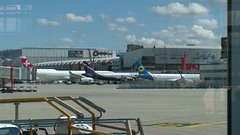 The country where a contract is agreed is generally also the country where disputes arising will be tried. However, special rules apply to contracts relating to carriage by air and, in one High Court case, a cruise operator was consigned to fighting its case against an airline in the courts of Papua New Guinea.
The country where a contract is agreed is generally also the country where disputes arising will be tried. However, special rules apply to contracts relating to carriage by air and, in one High Court case, a cruise operator was consigned to fighting its case against an airline in the courts of Papua New Guinea.
The operator launched proceedings in London, claiming damages from the airline on the basis that it had failed in its contractual duty to carry a number of passengers from Singapore to Papua New Guinea so that they could join a cruise ship in Port Moresby. The operator wished the dispute to be resolved in London, whereas the airline favoured Singapore as the appropriate forum.
The Court found that the operator had a strong case that the contract was made with the airline’s agent at Gatwick Airport. The English courts would thus normally have had jurisdiction to try the matter. However, that ignored the effect of the Warsaw Convention, to which both the UK and Papua New Guinea were signatories and which was incorporated into English law by the Carriage by Air Act 1961.
The Court found that the Convention provided a complete code in respect of damage or injury caused by air carriers and precluded the operator from pursuing any other cause of action. On a true reading of the Convention, the matter had to be tried in the country where the airline was based – Papa New Guinea – although neither party had favoured that country as the forum for resolution of the dispute.
